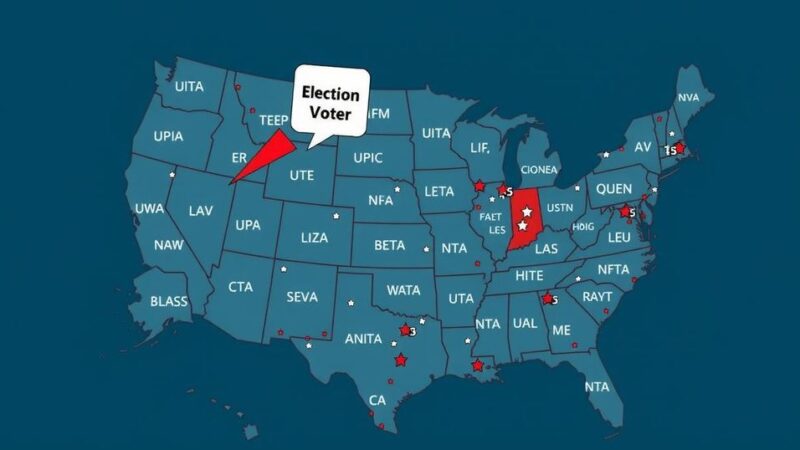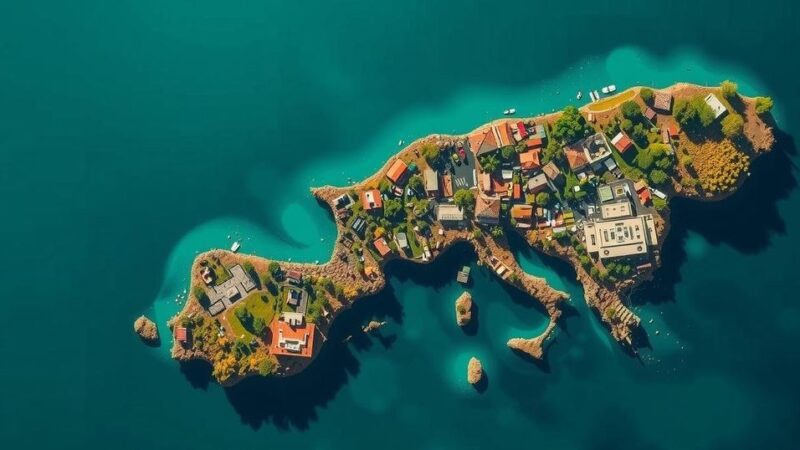The Dominican Republic has enacted a plan to expel 10,000 undocumented Haitians weekly in response to ongoing migration challenges from Haiti, which is facing significant instability due to gang violence. This initiative, articulated by presidential spokesman Homero Figueroa, aims to manage excessive migrant populations while assuring adherence to human rights protocols. President Luis Abinader has emphasized the need for international action to stabilize Haiti, which has influenced the country’s stringent migration policies.
On Wednesday, the Dominican Republic announced a significant initiative to begin expelling 10,000 undocumented Haitians weekly in response to increasing migration from Haiti. This decision was articulated by presidential spokesman Homero Figueroa, who emphasized the operation’s goal of alleviating overcrowded migrant populations within Dominican communities and assured that the expulsions would adhere to strict protocols that prioritize human rights. The government’s rationale for this measure stems from what they perceive as inadequate international efforts to stabilize Haiti, which has been severely impacted by criminal gangs. Following a protracted period of inaction, a UN-sanctioned force under Kenyan leadership has recently been dispatched to Haiti to restore order. President Luis Abinader expressed frustrations during a recent United Nations meeting, stating, “We warned at the United Nations that either it and all the countries that had committed themselves act responsibly in Haiti, or we will.” Since taking office in 2020, President Abinader has adopted a stringent approach to migration from Haiti, constructing a 164-kilometer concrete wall along the border and significantly ramping up deportations, expelling 250,000 undocumented Haitians in 2023 alone. The newly announced plan aims to escalate the number of deportations, with an estimated total that could exceed the current 495,815 Haitians residing in the Dominican Republic. Figueroa noted that the government would also be implementing measures to identify and dismantle human trafficking networks originating from Haiti, as well as increasing drone and camera surveillance along the border. The Dominican Republic occupies two-thirds of the island of Hispaniola and has a complex history of relations with Haiti, which is economically distressed and grappling with rampant gang violence subsequent to the disastrous earthquake in 2010. According to the UN, over 3,600 individuals have lost their lives to gang-related violence in Haiti this year alone, and more than 700,000 have been displaced, with a troubling half of that figure comprising children. Throughout the presidential campaign, candidates, including Abinader and his main opponent, resisted calls from the international community to permit an influx of those escaping Haiti’s turmoil. Furthermore, Haitian communities within the Dominican Republic have reported experiencing systemic discrimination and racism, encompassing challenges from governmental and security entities.
The situation in Haiti has deteriorated significantly over the past decade, marked by economic collapse, political instability, and violence exacerbated by powerful gangs. The devastating earthquake in 2010 set off a wave of humanitarian crises, prompting many Haitians to seek refuge and better living conditions in neighboring countries, particularly the Dominican Republic. The Dominican government, facing its own challenges, has adopted a strict migration policy under President Luis Abinader. The recent announcement of mass expulsions is part of a broader effort to manage migration flows and address the perceived consequences of Haiti’s ongoing instability on Dominican society.
The Dominican Republic’s announcement to expel 10,000 undocumented Haitians weekly reflects a heightened response to migration challenges stemming from Haiti’s dire circumstances. Despite the humanitarian implications, the government prioritizes national stability and security. As the Dominican Republic intensifies its efforts to control migration, the plight of Haitians escaping violence and poverty remains a pressing concern, necessitating a delicate balance between national policy and human rights.
Original Source: www.hindustantimes.com






